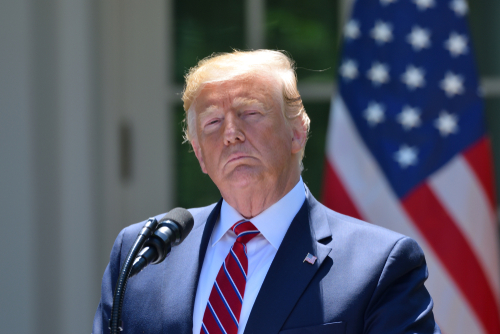Listen To Story Above
The former president’s announcement to eliminate the Department of Education has ignited fierce opposition from Democratic lawmakers, setting the stage for a contentious political battle over federal involvement in America’s education system.
Conservative politicians and advocates have consistently viewed the Department of Education as an unnecessary federal bureaucracy that undermines local control. The executive action proposed by Trump aims to shift educational authority entirely to individual states, marking a significant departure from decades of federal oversight.
Supporters of the initiative maintain that transferring education decisions to state and local authorities would better serve diverse student populations. They contend that federal involvement has created burdensome regulations and administrative inefficiencies that hinder effective education delivery.
Whoever organized to have children signing documents alongside President Trump, as he signed his executive order dismantling the US Department of Education, is pure genius.
The visual of this is historic.
Well done.pic.twitter.com/WKbjraO6Wz
— Paul A. Szypula 🇺🇸 (@Bubblebathgirl) March 20, 2025
The proposal has met strong resistance from Democratic representatives and education unions, who view it as a direct threat to the public education system. Opposition groups warn that dismantling federal oversight could lead to educational inequities between states, with particularly severe consequences for underprivileged and minority student communities.
Democratic lawmakers have begun exploring legal strategies to block the department’s elimination. They emphasize the federal government’s vital role in maintaining educational standards, protecting students’ civil rights, and providing support for disadvantaged learners.
The controversy surrounding the Department of Education’s future is expected to become a central campaign issue in upcoming electoral races. The intense disagreement reflects deeper philosophical differences regarding federal authority in national education standards and policies.
JUST IN: President Trump announces that special needs & nutrition programs handled by the Department of Education will now be controlled by the Department of Health & Human Services. pic.twitter.com/HpOm9UPxE9
— George (@BehizyTweets) March 21, 2025






